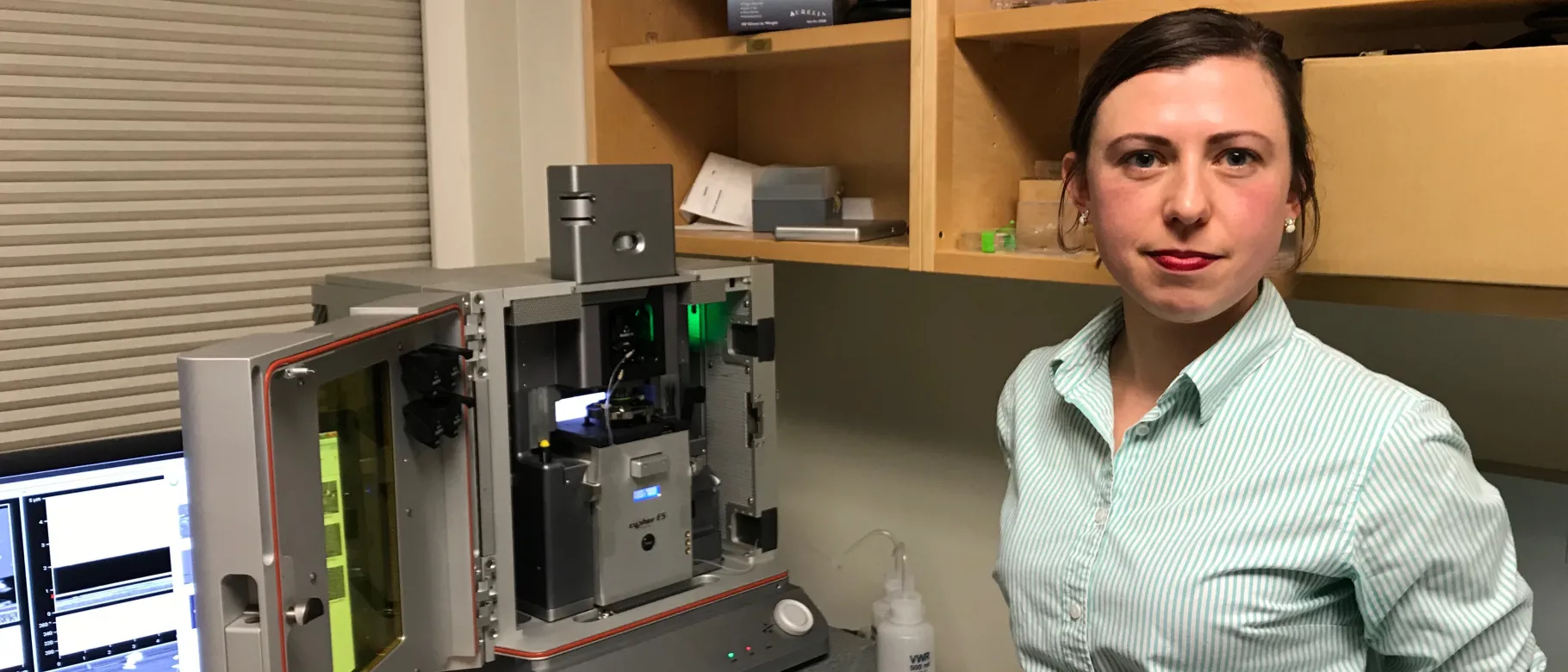State-of-the-art microscope gives UNE chemistry and physics students an upper hand in research

Students at the University of New England are getting an upper hand on research projects by having access to an Atomic Force Microscope (AFM).
UNE is the only school in Northern New England to have the state-of-the-art AFM.
“It’s unique for a school like UNE to have this,” says Eva Rose Balog, Ph.D., assistant professor in the Department of Chemistry and Physics. “Our students are getting hands-on training with it.”
The AFM is an extremely high-speed, high-resolution, versatile instrument for decoding and manipulating materials.
It processes at the "nanoscale" level. According to Balog, the nanoscale refers to what goes on at the scale of billionths-of-a-meter—about 90,000 times smaller than the width of a human hair. This is the scale of atoms and molecules, including molecules such as DNA strands and individual proteins.
“It’s one of the fastest microscopes in the world, which means you can do the kind of studies you couldn’t do just ten years ago, even with the best instruments,” Balog says.
Reliably analyzing liquids was very difficult using the lab’s previous microscope. That’s not the case with the AFM.
“It’s the difference of being able to get back into the liquid research game,” says James Vesenka, Ph.D., professor in the Department of Chemistry and Physics.
The AFM allows researchers to get a new perspective on things they have already investigated by providing much more detail.
“Anytime you have a new tool, even if something has been characterized before, you’re going to learn something new,” Balog says. “The deeper you look at something, the more you’re going to learn.”
Wynter Paiva (Biochemistry and Medical Biology ’20) says her experience using the AFM will be invaluable as she moves on in academics and her professional career.
“We can image live cells and see how they interact with certain drugs, giving us insight and foresight before we introduce things to the body,” Paiva says. “I think the experience using the AFM and interpreting data from it will help me stand out when I’m applying to medical schools.”
Vesenka says this is the kind of hands-on learning that sets UNE graduates up for future success.
“They get exposure to state-of-the-art research technology, which always improves their competitiveness,” he says.

